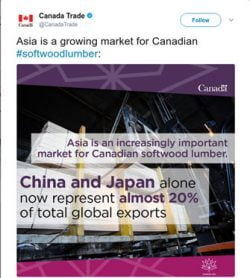As I mentioned in my blog about 2018 predictions in Canadian manufacturing, 2018 has the potential to be a productive and profitable year for the Canadian manufacturing industry. Overall, in my estimation, cautious optimism prevails. Exporters are quick to point out, however, that President Trump has floated some distinctly dark clouds across otherwise blue skies. This post covers my thoughts on Canadian manufacturers and NAFTA, and the reality and next steps for looking to global markets for growth. For business leaders on both sides of the border, in a wide variety of industries, the NAFTA renegotiation process appears to have more to do with politics than with building prosperous economies. Lowering trade barriers enables manufacturers to expand to supply wider markets, lowering costs as they move to larger scales. Protectionism, on the other hand, leads to reduced trade, which inevitably results in lower rates of economic growth. And while it’s true that the US is Canada’s most important trading partner, it’s also true that Canada is the largest destination for American export goods, and its fourth-largest source of imports. A bad deal – or no deal – would be detrimental to the economy on both sides of the border. (To be honest, a bad deal could be worse for Canada, since trade with the US makes up a larger relative proportion of our GDP.) Unfortunately, no one has magical insight into NAFTA’s future. As Chrystia Freeland, Canada’s Foreign Minister, stated in a recent interview: “...our approach in Canada is hope for the best, prepare for the worst.” Freeland’s sentiment is appropriate. It’s a reassurance that rationality may yet win the day, along with a strong reminder to be prepared – in case it doesn’t. The appropriate preparation for many companies is market diversification. If the US throws up tariffs and other barriers to trade, novel and aggressive expansion strategies should certainly be considered. And, since the global IT and supply chain infrastructure is both robust and efficient, perhaps it’s time for Canadian manufacturers to make more use of it. Last April, after the US imposed a 20% tax on Canadian softwood lumber, Canada Trade trolled the White House with a series of cheeky, but well-aimed messages on Twitter. The tweet pictured below helps to make the case for diversification in the face of trade barriers:












